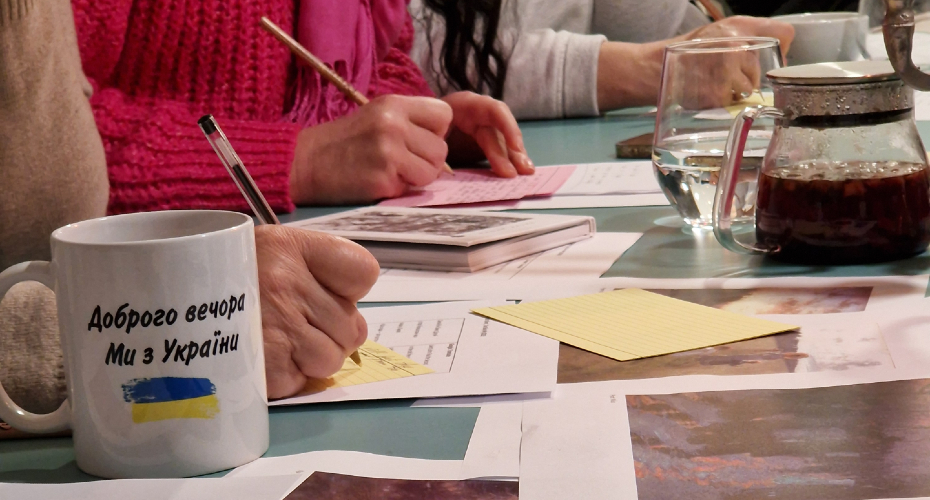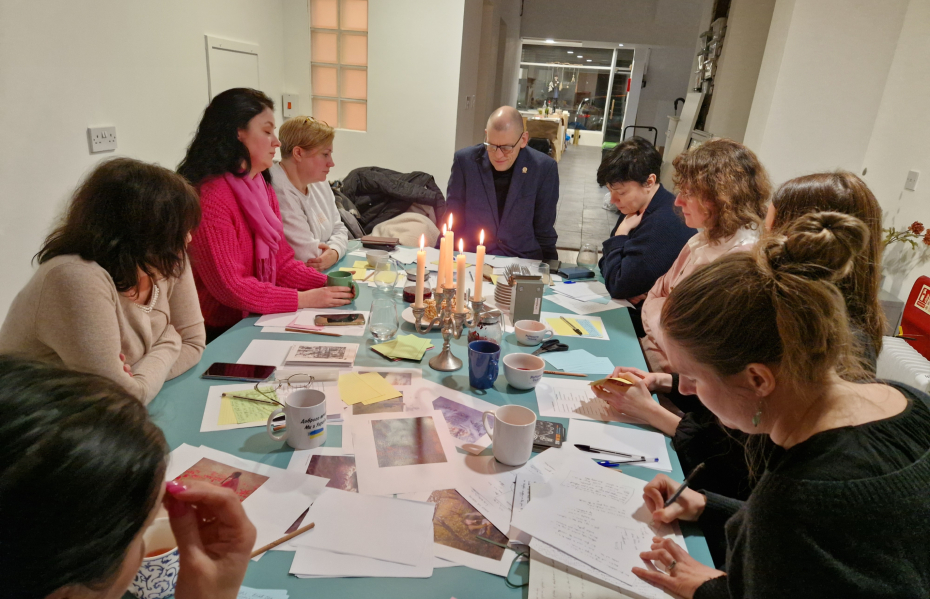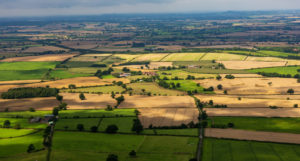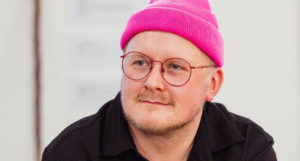Ukrainian workshops bringing poetry to refugees in Devon

Ukrainian refugees living in Devon are being offered the opportunity to take part in therapeutic poetry workshops in association with students and staff at the University of Exeter.
Ukrainian War Poetry: Translating Experience offers refugees the chance to share food, drink and poetry with their fellows, and turn their own lived experiences into creative writing.
The project is a partnership between the Devon Ukrainian Association and the University’s Department of Languages, Cultures and Visual Studies – which has been leading efforts to translate the new wave of Ukrainian war poetry unleashed by Russia’s illegal invasion of its western neighbour.
It has been supported by the University’s Bridging Communities Fund, with the workshops themselves led by Devon-poet Fiona Benson.
“Ukrainian War Poetry: Translating Experience invites refugees in Devon and Exeter, who are on the government’s Homes for Ukraine scheme or similar programmes, to share poetry reading and their reactions to it,” says Professor Hugh Roberts, co-lead for the project. “In so doing, we hope that they can creatively express some of their own experiences, helping them to further develop resilience at this distressing moment in history.”

The weekly two-hour workshops are all taking place in Exeter, and open with the sharing of Ukrainian food and drink. The poem, which is chosen jointly by the project partners, is then read and discussed, before Ms Benson leads the writing exercise.
The workshops are also being supported by two University interns, Nikita Isagulov, a PhD student in English, and Olena Mevsha, an undergraduate in Business, who are both on hand to offer translation and interpretation insight.
“The first workshop drew on a poem by Artur Dron’, which reflects upon a Ukrainian proverb, ‘Rain falls, children grow’, but changes it to the haunting refrain ‘Soldiers fall, children grow’,” says Professor Helen Vassallo, a translation specialist at the University. “This elicited an outpouring of beautiful and poignant associations on the weather: one participant shared a memory of walking through the slush in Kyiv after a long stay in the UK, aware of the air raid sirens, but happy to be home. Another participant found joy in the memory of letting her child play in the pouring rain, despite, or maybe because of, the grandparents’ disapproval.”
The workshops, which will run until a concluding public reading at Mermaid, Gandy Street, Exeter, on the evening of 22 March, follow on from an earlier collaboration between the Devon Ukrainian Association and the University’s Languages department. ‘Reading for Odesa’ was a simultaneous cultural event held across the world on 24 February, and coordinated by the UNESCO City of Literature network, at which Ukrainian poems were orated at public ceremonies.
The Languages team has also produced a YouTube playlist of Ukrainian war poetry by Dron’, Olena Huseinova and another soldier-poet, Liza Zharikova, and is working with poets in the country on new translations.
“At a time when Ukraine is resisting Russian oppression of its culture and identity, we are proud to be providing a platform for powerful, poignant Ukrainian poetry.”
Professor Hugh Roberts



